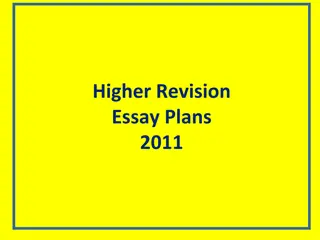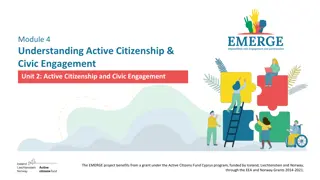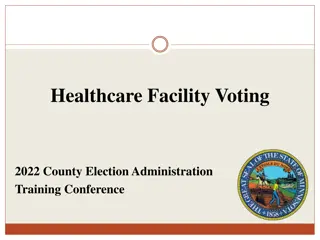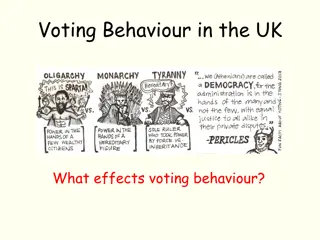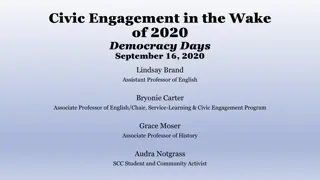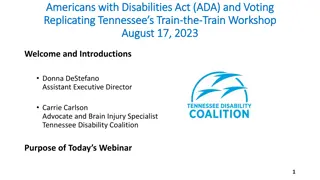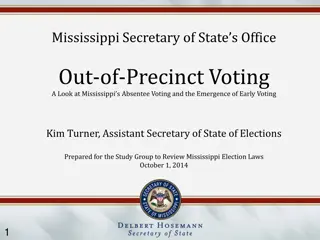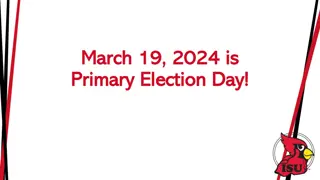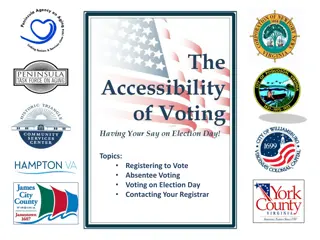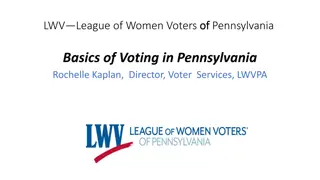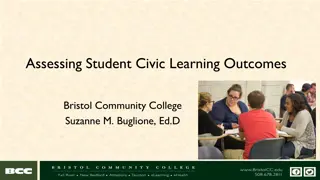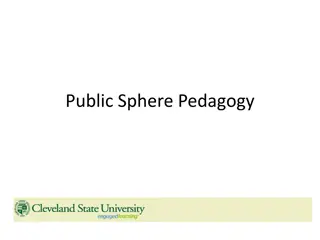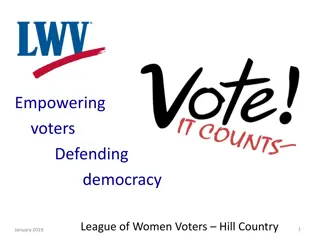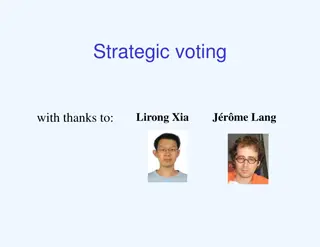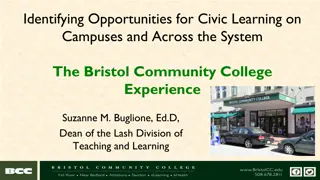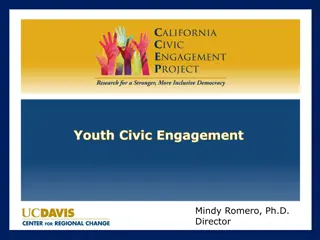Importance of Student Voting for Civic Engagement
Students should vote as it cultivates civic engagement, influences election outcomes, and establishes voting habits for life. Engaging youth in the electoral process not only impacts their households but also ensures diverse representation. Benefits include increased participation in political activities, stronger community connections, and effective communication within immigrant communities. Encouraging young voters can help bridge generational gaps and reduce disparities in voter turnout among different youth subgroups.
Download Presentation

Please find below an Image/Link to download the presentation.
The content on the website is provided AS IS for your information and personal use only. It may not be sold, licensed, or shared on other websites without obtaining consent from the author. Download presentation by click this link. If you encounter any issues during the download, it is possible that the publisher has removed the file from their server.
E N D
Presentation Transcript
Why should students vote? The Center for Information and Research on Civic Learning and Engagement (CIRCLE, 2010) found that generally, eligible registered voters are more likely to engage in various civic and political activities than those who are not registered. Information provided in this Power Point Presentation is adapted from: http://www.civicyouth.org/civic-engagement-among-registered-voters-and-non-registered-eligible- citizens/
Why Youth Voting Matters Voting is habit-forming: when young people learn the voting process and vote they are more likely to do so when they are older. If individuals have been motivated to get to the polls once, they are more likely to return. So, getting young people to vote early could be key to raising a new generation of voters. Young people are a major subset of the electorate and their voices matter: 46 million young people ages 18-29 years old are eligible to vote, while 39 million seniors are eligible to vote Young people (18-29) make up 21% of the voting eligible population in the U.S. Young people s participation can influence election results.
Why Youth Voting Matters Involving young people in election-related learning, activities and discussion can have an impact on the young person s household, increasing the likelihood that others in the household will vote. In immigrant communities, young voters may be easier to reach, are more likely to speak English (cutting down translation costs), and may be the most effective messengers within their communities. And there are major differences in voter turnout amongst youth subgroups, which may persist as these youth get older if the gaps are not reduced.
Students who are registered are more likely to engage in the following ways: http://www.civicyouth.org/wp-content/uploads/2011/10/CE_RegVNonReg_WH_1.jpg
VOTING FACTS Data suggests that registered voters, overall, are more strongly connected with their neighbors and family members. They are more likely to discuss political issues with family or do favors for their neighbors, compared to non- registered voters. Furthermore, when looking at the data, one can see that white eligible citizens have the highest percentage of being involved with any sort of group regardless of registration status (especially registered voters). African Americans and Asians have very similar percentages of both voter groups. Latinos have the lowest rates of group involvement regardless of voter registration.
Ethnicity & Voting http://www.civicyouth.org/wp-content/uploads/2011/10/CE_RegVNonReg_WH_2.jpg
DISCUSSION QUESTIONS How would you address the problem of low voter registration rates among various groups? According to the information provided, what is the link between voter registration and other forms of Civic engagement? Do you feel it is important to vote? Why or why not? Should voting be mandatory? Why or why not? Work with a small group or a partner to develop a slogan or campaign to motivate young people to register to vote and participate in elections?




